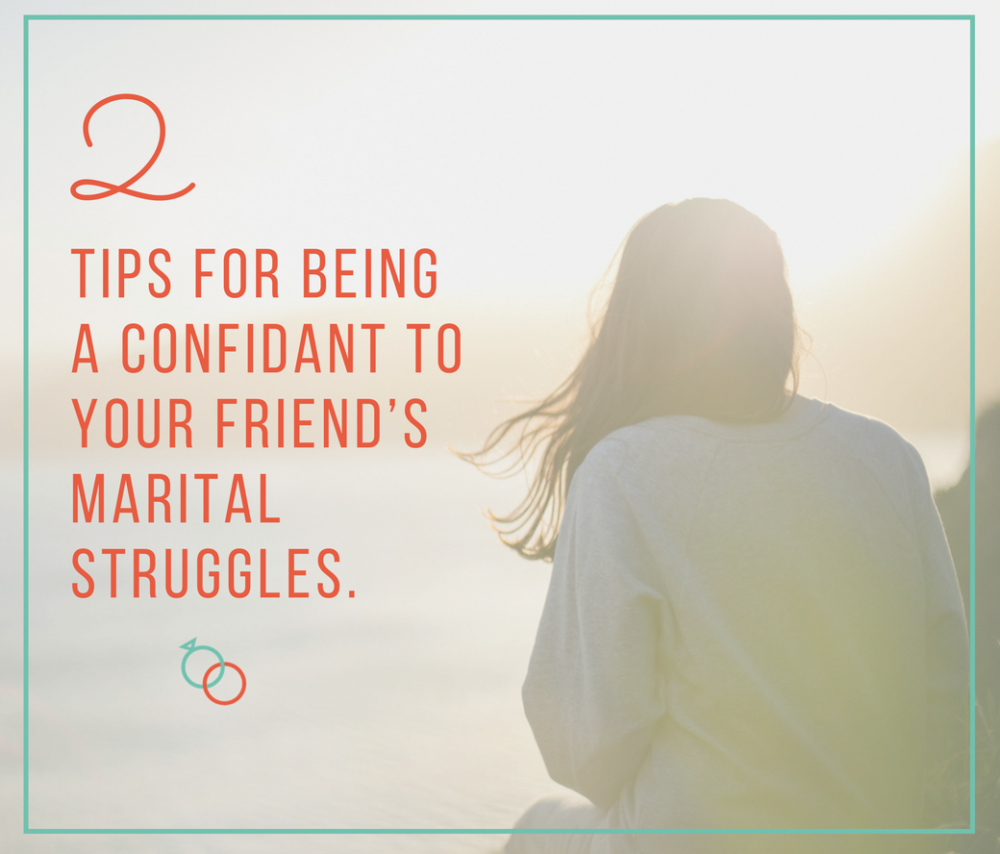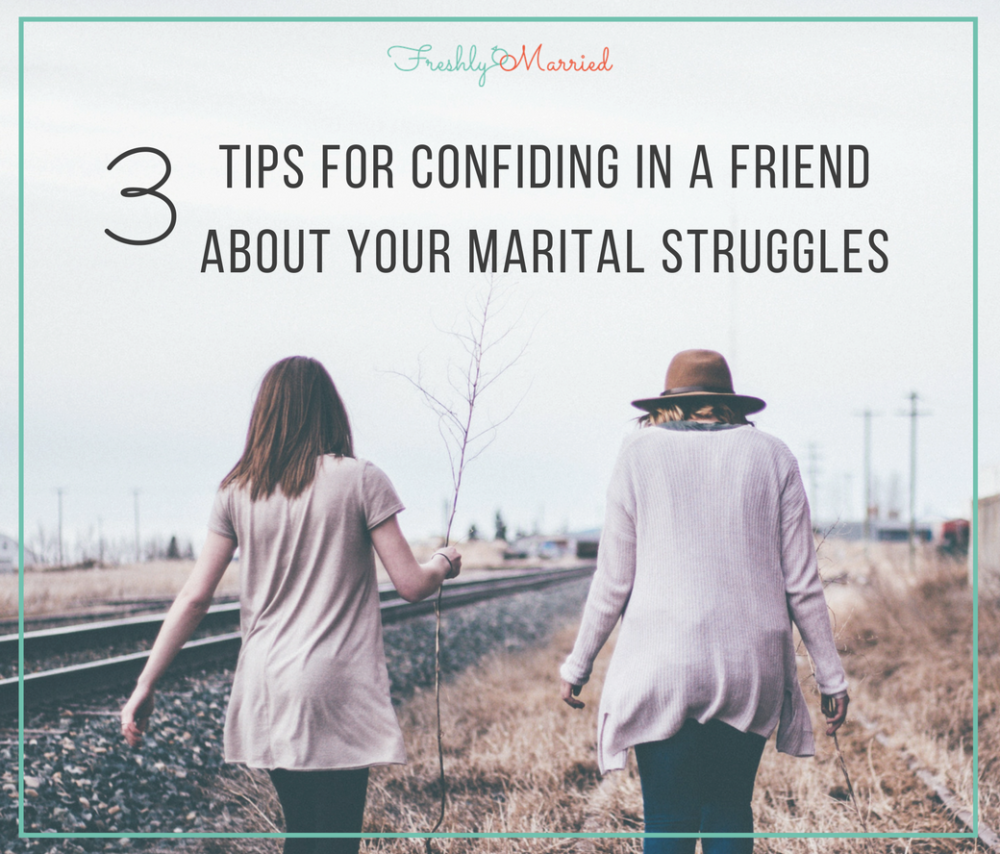Phone-a-Friend
By Amy Miller
I just read an article about a national study that found 73% of Americans have given advice to a friend or family member about their relationships. Source is at the bottom because I don’t want to bore you like a class lecture. However, I do want to address this important role of being a confidant to others on their relationships, because these people can be a very influential lifeline to your marriage success, whether it’s positive or negative.
I think giving advice happens without us even thinking because we are so used to talking about our lives with people we trust. It was especially easy in the dating life when every detail was so exciting: “Ahh he held my hand!!!! What do I do? Text him or wait a few days?!” Every detail was so fun and entertaining to us. Now, with the upgrade to marriage, the level of seriousness has been raised. The “guidelines” or advice aren’t as simple as: “play hard-to-get” or “wait a few days to talk to him and he’ll come around.” Dilemmas in marriage can be much more complex because there is a lot invested in the relationship like kids, friendships, family ties, finances, and security.
While I do think we can receive some great insight from the people who know us really well, do we stop to think about the advice they are giving us in these dilemmas, or are we just applying it as if it’s always the best thing to do? And is it actually the best thing to do? Being a person someone confides in about the details of their relationship can be a big responsibility. Even with all the knowledge and training I have about relationships I still get nervous sometimes about giving the right advice to people because the stakes are high! This is someone’s life, their family, and their happiness! Since this is not something to take lightly, here are some things to remember when you are the
Since this is not something to take lightly, here are some things to remember when you are the confidant, and when you are the person confiding.

- Do your best to put your personal experiences aside from their experience. Our advice is based on our own personal experiences and the limited knowledge we have. Most of the time I think it comes from a place of genuine concern and love, because we don’t want to see them get hurt. I remember catching myself one time when I was giving advice to a good friend about her love life. I saw red flags that I had been hurt by in a previous relationship, so I started telling her what I thought she should do. Then I realized that even though this relationship was sounding very similar to mine, I don’t know if the same things will happen to her that happened to me. From that point on I decided that when a friend seeks my advice on their relationship, I will understand the situation as best I can, give my advice based on the knowledge and experience I have, and then say: “From what I have learned about situations like this….” and then “While I think it’s good sense to be cautious, it could play out differently for you. Think about it and decide what you think is best to do.”
- When in doubt, give support instead of giving stupid advice. hahaha. Sorry it sounds harsh. Great example of this is from Teen Mom (I love this show!). One of the moms was recently going through a struggle with her husband because he would make her feel guilty for going out with her friends. When he constantly texted her while on a trip with her friends, the advice she received from her friends was: “Just turn off your phone, ignore his texts.” I love what her reply was to her friends: “You don’t understand, it’s my husband, I can’t just ignore him…. It’s easier said than done.” SO TRUE. I mean, yeah her husband was annoying their trip but ignoring him won’t fix anything for her, and frankly would actually make it worse! Sometimes just hearing that others believe in their relationship can be help enough, so my suggestion is if you don’t know what advice to give then just provide emotional support instead
I discuss these two ideas and suggest a few more ideas in this article, “4 Mistakes We Make When a Friend’s Marriage is Struggling.”

Think about who you confide in. Just like the example above, not all friends are going to have your best interest in mind. It’s important to go to people you can trust and who care about you. Big suggestion here: don’t spill everything to family members! If you haven’t learned this already, it can make the situation worse. Family members might look at your spouse differently, and they’ll probably tell it to other family members. Not only do family members not forget stuff, but they also have a different level of care and defense for their own which could cause the situation to spiral worse.
Think about the advice you are given, especially before acting on it. While it can be comforting to talk to someone we know and trust, and who knows our relationships fairly well, I think we should take their advice with heavy consideration. Don’t feel like you have to go through with their advice, because it’s YOU who knows your relationship the best. If you’re that son or daughter who goes to mom for advice on an argument, remember that you don’t always have to go through with what your mom advises you to do. I’m totally gonna say this: Mom isn’t always right!
Don’t confide in people all the time. I don’t think it’s good practice to discuss the tiffs in your marriage with friends and/or family often. Especially if it’s consistent, because it can seem like your marriage is unstable. It’s not necessarily about judgements, but you don’t want people to doubt your marriage or you might start doubting your marriage, too. Also, if you are bashing your spouse every time you seek advice, that’s just plain disrespectful.

I wanted to bring this up because we are all confidants and confide in others at some point. As friends and family members we are typically the first lifeline used towards helping a marriage. It’s important for us to realize the responsibility of that role and give advice objectively. I don’t have all the perfect answers to every relationship problem but I do know a lot. For the amount of hours I’ve put into studying marriage and family, I would consider myself to be at “expert” status actually! That’s why I want to emphasize my contact form. If you have questions that you could use some marital advice on but don’t feel comfortable talking to family and friends about it, feel free to ask me about it. Even if you just need to vent it to someone. You don’t even need to tell me who you are! I think it would just help to talk to someone who knows a little bit more about this stuff than the average parent or friend does.
Article: Lind Seal, K., Doherty, W. J. and Harris, S. M. (2015). Confiding about problems in marriage and long-term committed relationships: A national study. Journal of Marital and Family Therapy.